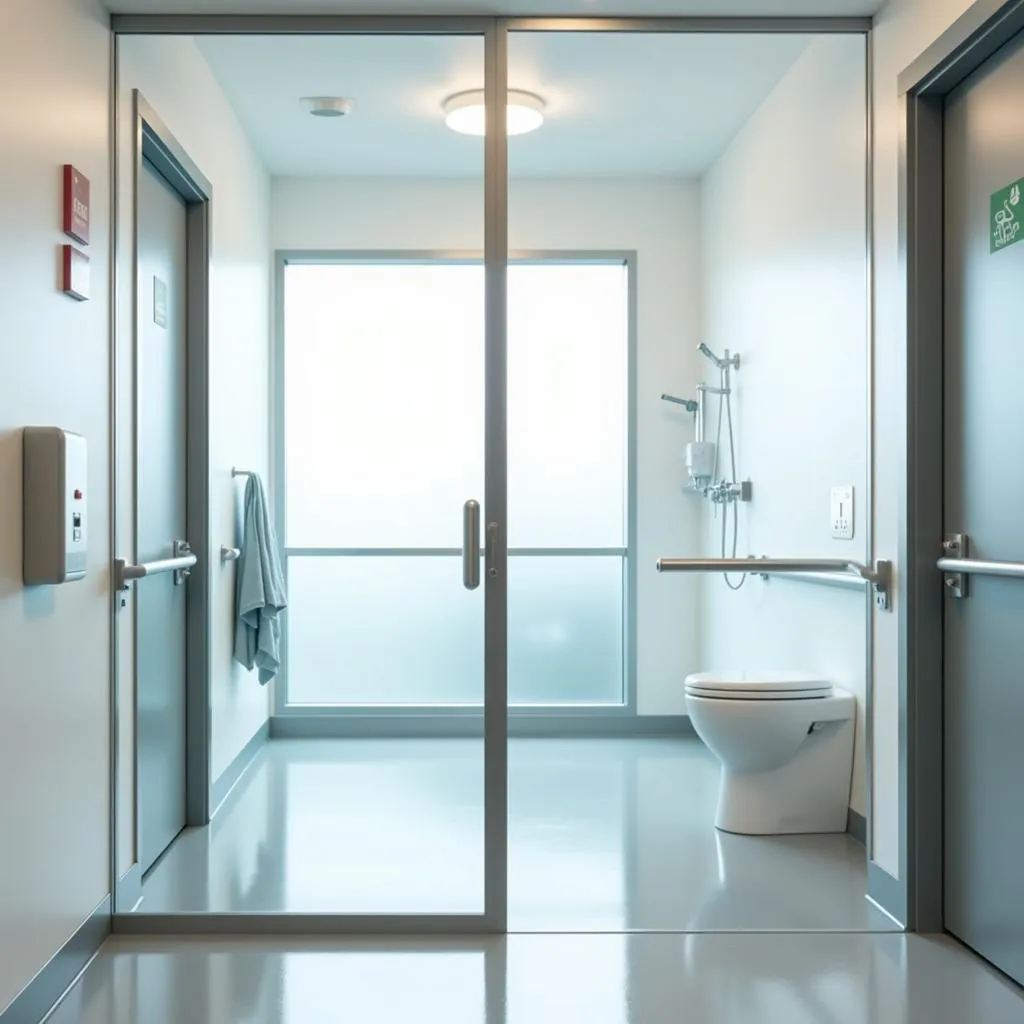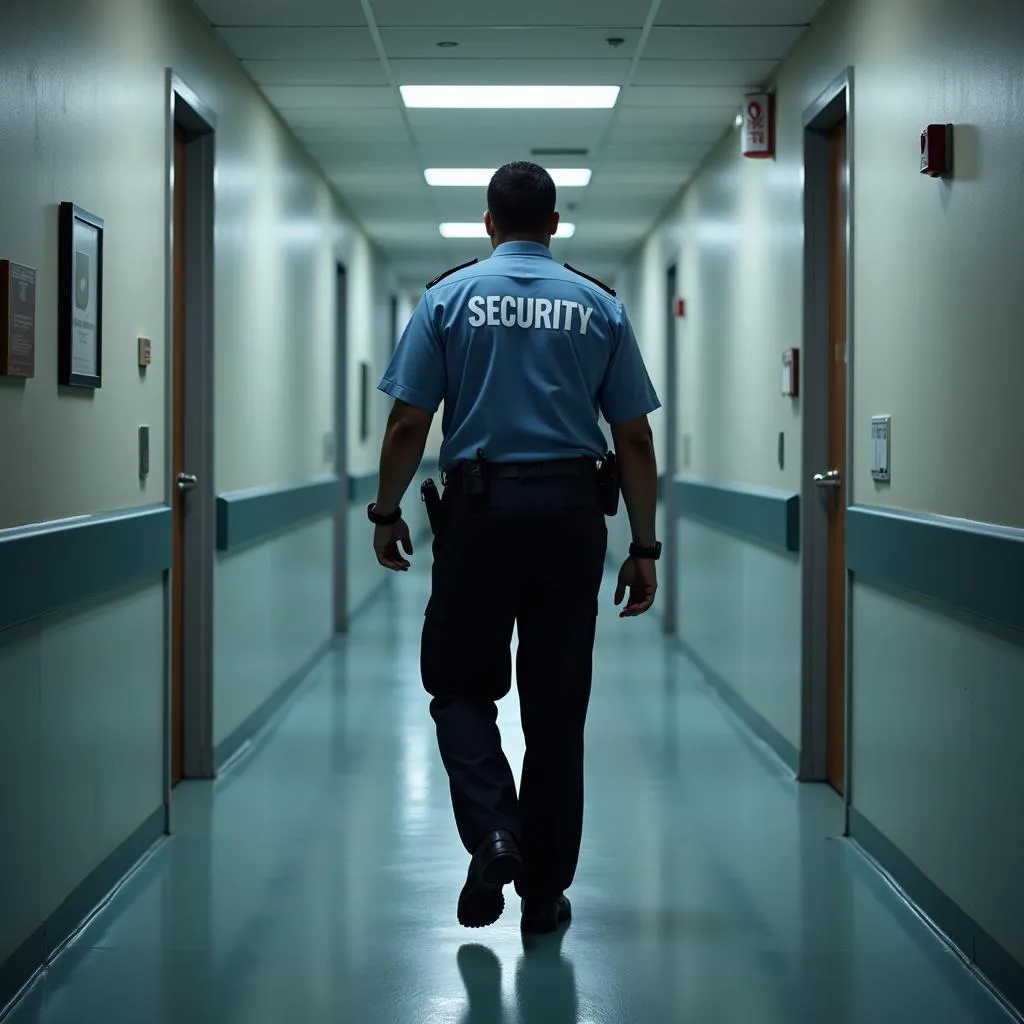The question of whether or not hospitals have cameras in bathrooms is a common one, often fueled by concerns about privacy. While the thought might seem unsettling, it’s essential to understand the reasons behind such inquiries and the truth about hospital security measures.
 Hospital Bathroom Design with Privacy Features
Hospital Bathroom Design with Privacy Features
Hospital Security and Patient Safety: A Balancing Act
Hospitals have a complex responsibility when it comes to security. They need to ensure the safety and well-being of their patients, staff, and visitors while respecting individual privacy. This delicate balance requires careful consideration of various factors when implementing security measures.
Why People Ask About Cameras in Hospital Bathrooms
Several reasons contribute to concerns about cameras in hospital bathrooms:
- Privacy Concerns: Bathrooms are considered private spaces, and the idea of surveillance in these areas can feel like a violation.
- Misinformation: Rumors and inaccurate information, sometimes perpetuated online, can create unnecessary fear and suspicion.
- Media Portrayals: Movies and TV shows often depict hospitals with extensive surveillance, which can influence public perception.
- Vulnerability: Hospital patients are often in vulnerable positions, both physically and emotionally, making them more sensitive to perceived threats to their privacy.
The Reality: Cameras and Privacy Laws
In almost all circumstances, cameras are not permitted in hospital bathrooms. This restriction is primarily due to:
- Privacy Laws: Stringent privacy laws, such as HIPAA in the United States, prohibit the use of surveillance cameras in areas where patients have a reasonable expectation of privacy, including bathrooms and changing rooms.
- Ethical Considerations: Hospitals have a strong ethical obligation to protect patient dignity and privacy. Installing cameras in bathrooms would be a direct violation of these principles.
 Hospital Security Guard Patrolling Corridor
Hospital Security Guard Patrolling Corridor
Alternative Security Measures in Hospitals
While cameras are not used in bathrooms, hospitals implement various other security measures to ensure safety:
- Security Personnel: Trained security guards patrol hospital premises, including hallways and common areas, to deter crime and respond to emergencies.
- Controlled Access: Many hospitals restrict access to certain areas, such as patient floors, using key cards or other security systems.
- Surveillance in Public Areas: Cameras are commonly used in public areas like hallways, waiting rooms, and parking lots to deter crime and assist in investigations if necessary.
- Emergency Buttons: Hospital bathrooms are equipped with emergency call buttons that patients can use to alert staff in case of a medical emergency or other urgent situations.
Can Hospitals Have Cameras in Patient Rooms?
The use of cameras in patient rooms is a more complex issue and varies depending on specific circumstances. To learn more about this topic, you can read our article: Can Hospitals Have Cameras in Patient Rooms?
Addressing Concerns About Privacy
If you have concerns about privacy during a hospital stay, don’t hesitate to:
- Ask Questions: Speak to your healthcare provider or a hospital administrator to clarify any questions you may have about security measures and privacy protocols.
- Understand Your Rights: Familiarize yourself with your rights as a patient, including those related to privacy and confidentiality.
- Report Concerns: If you witness any suspicious activity or have concerns about your privacy, report them to hospital staff immediately.
Conclusion
The safety and well-being of patients are paramount in hospitals. While the use of cameras in bathrooms is strictly prohibited to protect patient privacy, hospitals employ various other security measures to maintain a secure environment. By understanding these measures and advocating for your rights, you can help ensure a safe and comfortable hospital experience.
Need help? Please contact Phone Number: 02437655121, Email: [email protected] Or visit: No. 298 Cau Dien Street, Minh Khai, Bac Tu Liem, Hanoi, Vietnam. We have a 24/7 customer service team.